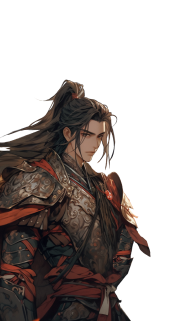Chapter 25: Bul’tar (Teaser)
Bul’ta.
The more accurate pronunciation of this word is ‘bul’tar.’
In modern times, the word is familiar as the shout of the orcs. The ‘r’ drawn out at the end has been omitted, and it became the bul’ta that it is today.
In ancient orc language, bul’tar has the most complex and nuanced meaning. Universally, it means survival, living, and sentience, but contextually, it symbolizes an act of the highest value an orc should achieve in their lives. It is difficult to explain the meaning of this word in a universal language because it has diverse implications.
In the case of the former definition, ‘bul’ta’ could somehow be a substitute for ‘life’ or ‘survival,’ but based on the latter definition, this issue becomes more complicated. There isn’t a word in an official language that can precisely express the implications of this word. The word is polysemous and is collectively about their way of life, ethics, goals, and dreams—the most important thing one must achieve in life.
Understanding this word is extremely difficult, but it is crucial for research on orc culture and philosophy. I have met many orcs, and I was able to experience a bit of the true meaning of bul’tar by interacting with them.
If we must express this word in our language and if there is a term that comes close to bridging the gap between the two languages, I propose this conclusion.
‘Bul’tar’ in ancient orc language is ‘life,’ and to orcs, ‘life’ is, in another word, ‘honor.’
To orcs, life is just a process to fulfill honor, and honor is the collective of the values their life must prove. They are somber and religious about this conviction. Thus, the meaning of bul’tar is distinct from life and survival.
—Elliot de...



Log in to continue your adventure
Other benefits you will get
Unlock free chapters every day
Bookmark your novel and never lose track of your progress
Share your thoughts with your favorite translator in the comments.